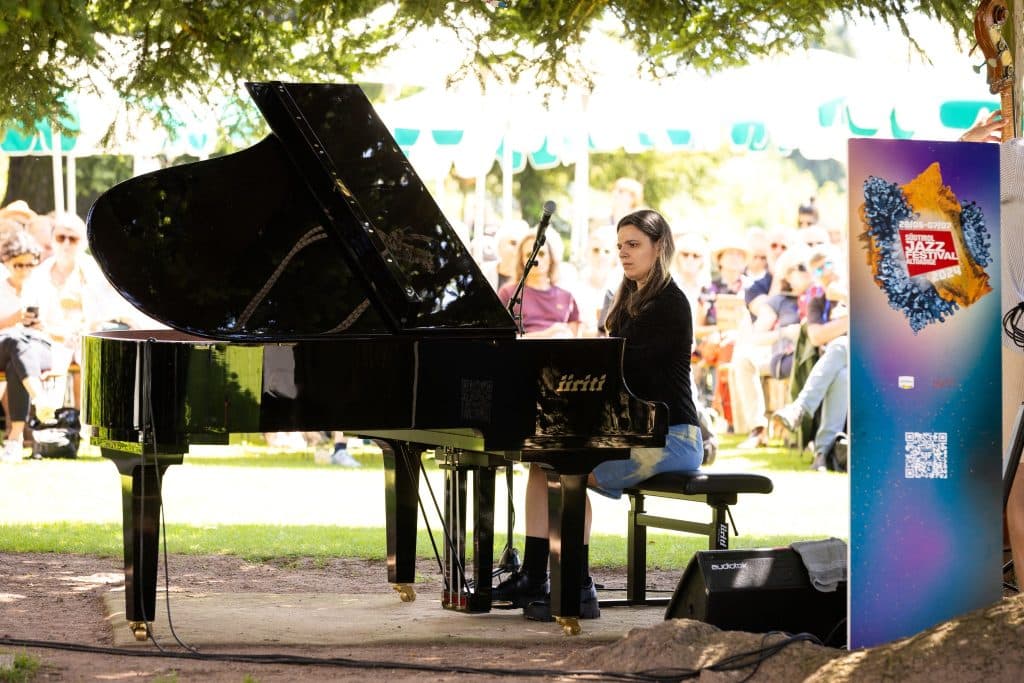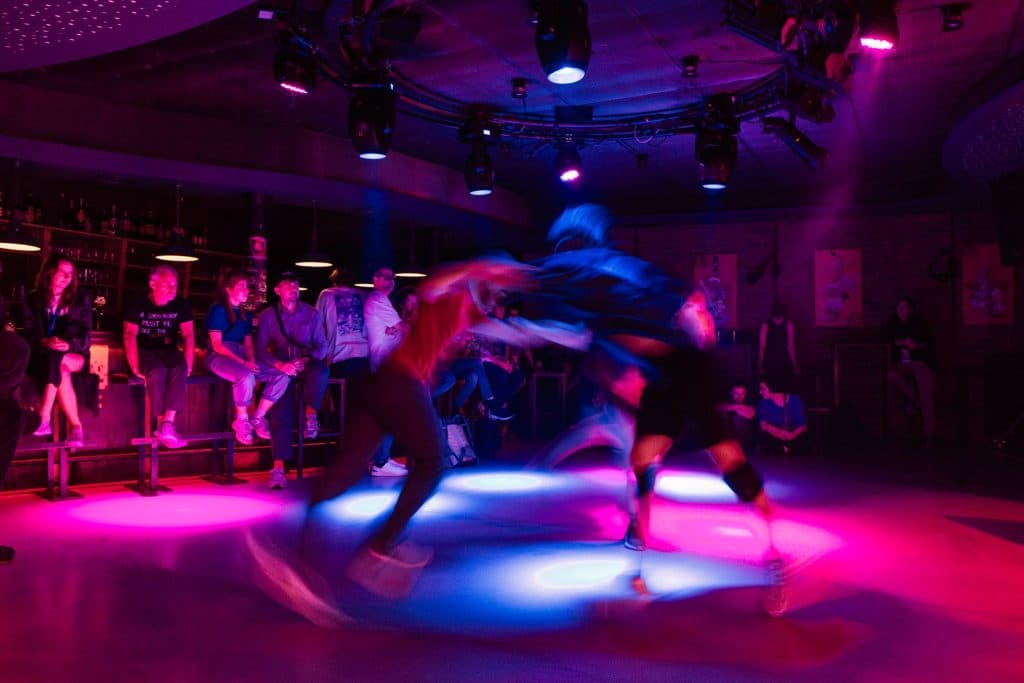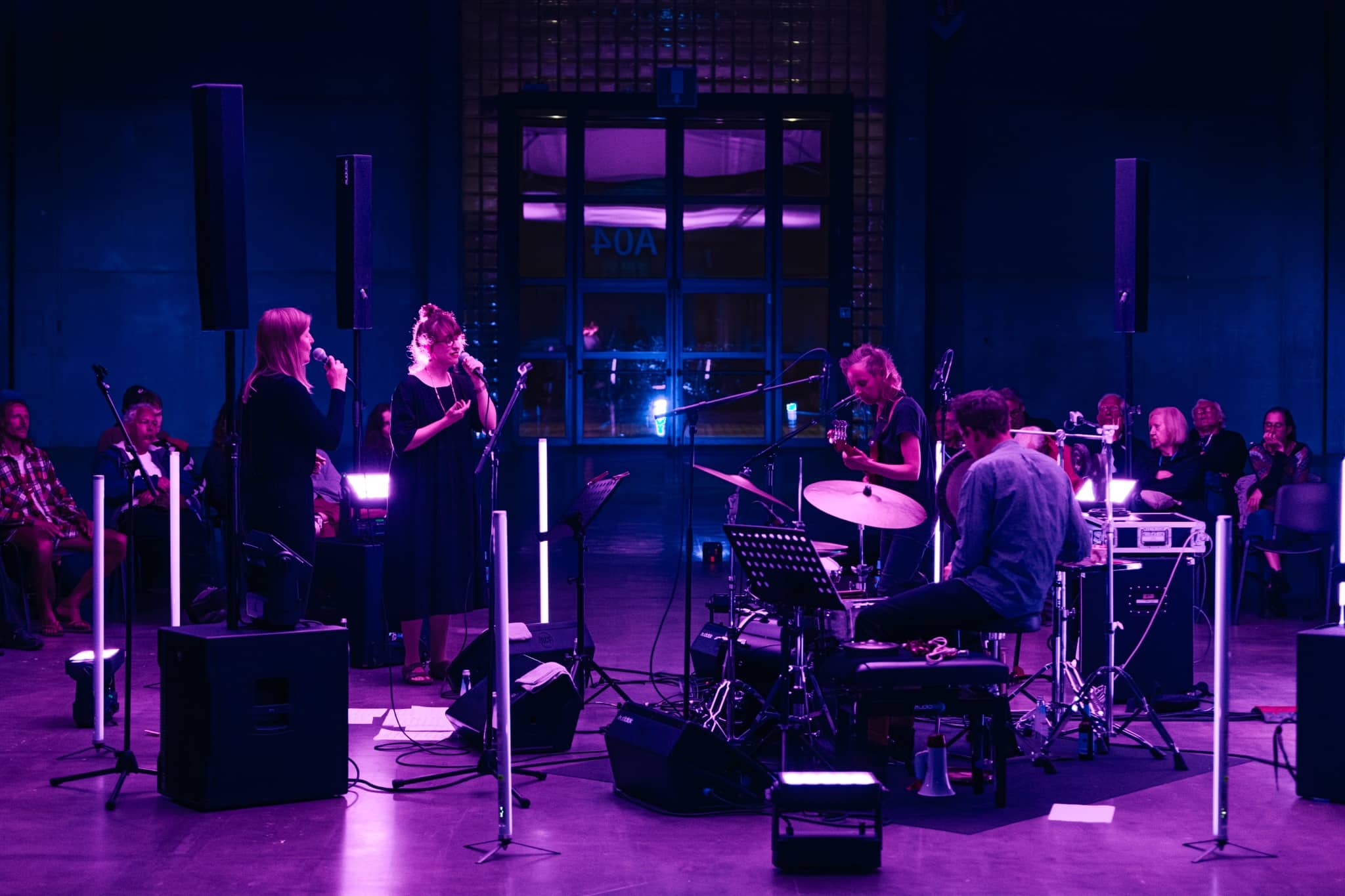After Ralf Dombrowski’s report of the opening weekend of Suedtirol Festival 2024, Oliver Weindling reports on its closing days
Oliver Weindling writes: Suedtirol Festival’s change of artistic directors, from Klaus Widmann, to the present triumvirate of Max von Prest, Roberto Tubaro and Stefan Festini Cucco, seems to have been seamless. One difference is that the thematic/geographic focuses of previous years have gone. But now the knowledgeable and trustworthy new team’s imaginations can run riot in equally interesting ways. They also have to be flexible: while often a hallmark of this festival is its beautiful outdoor locations, this year’s unreliable weather meant that they had to come up with quite a few last minute indoor alternatives. Another feature is that musicians appear and then reappear in different lineups, and pass the baton to other musicians who similarly play several times.
Such was the case with pianist Olga Reznichenko. After playing the background music to a film, Mr Radio (a dark surrealist drama where the musicians seemed to reflect the inner psychology of the characters), along with Francesca Remigi on drums and saxophonist Daniel Erdmann, she brought her own trio to play in the elegant garden of the Holzner Hotel in Upper Bolzano. Perhaps because the audience is attentive and the elegant location of a garden under the trees so attractive, her acoustic piano trio (with Lorenz Heigenhuber on bass and Max Stadtfeld on drums) was inspired to play a thrilling set. A great positive energy. Her background from Russia seemed to come through at times, such as with a tune based on Tarkovsky’s film ‘Solaris’. She now lives in Germany and I felt that there were certainly some John Taylor influences in there.

We had here one of the great situations that the festival can achieve, where venues and festival collaborate so supportively to create memorable gigs. Our own – if we can call her that, given that she also has South Tyrol roots – Ruth Goller brought her vocal trio Skylla (with Lauren Kinsella and Alice Grant) plus drummer Max Andrzejewski performing in the round of the Bolzano Exhibition Centre. Indeed, as one walked in, you were immediately immersed in 30+ images promoting the event on screens ranging from the mid-sized to the enormous. And the band certainly lived up to the expectations in this unexpected choice of venue. But it worked! They were able to take advantage of the reverberant church-like acoustics. Ruth both sings and plays bass. The bass and drums rhythm section certainly gave the performance a great momentum and had moments where they could really explode. So there was space for us to get to hear Ruth Goller’s solos as much as the trio of vocalists. Disappointing though that this was the only UK band in a festival of over 50 concerts as for many to whom I spoke it was a highlight.
Johannes Schleiermacher had run over from the Kapuziner Park, which has been the festival’s “base camp” for the past few years. Here he had played with Lukas Kranzelbinder’s Shake Stew. This band has become perhaps the most celebrated of what is clearly an imaginative Austrian scene at present, with even a prime time Austrian TV documentary. In effect, a double rhythm section and horn section, nothing of the middle harmony that might be supplied by guitar or piano was missed. And we could appreciate the interplays. The joyous intertwining and toing and forging of the drummers reminded me of how the two drummers were able to play off one another in Sons of Kemet. Particular mention should be made of the impeccable sound by Markus Wallner.
The trumpeter of Shake Stew, Martin Eberle, and Markus Wallner had both been involved with the gig at Feltuner Hut earlier that day by Haezz, an Austrian trio which also involved Stephan Flagar on tenor sax and Tobias Vedovelli on double bass. The barn had been cleared and prepared in just an hour or so. And Wallner’s sound was some of the best that I have heard at the festival over the years, also due to its wooden structure. The trio was therefore well served and responded accordingly. There was a certain element of the Alpine in the nature of the band, as well as incisive contrapuntal elements and a positive mind set.
Another gig that had had to change location at short notice was the trio Fumagalli, which is a trio like Haezz, but with the trombone of Andreas Tschopp instead of trumpet. Here again the replacement location in the museum of a former silver mine in Ridnaun, instead of open air higher up, proved exemplary as it allowed us to appreciate this Swiss band. They had been best known as part of Hildegard Lernt Fliegen, and still sustained some of the group’s subtle humour. But they are also influenced indirectly by the baroque and even Bob Dylan, with these elements coming together with great panache.
The festival can be proud of its commissions, such as adding improvised music to the film Mr Radio. A newly-formed trio of drummer Julian Sartorius, Simone Graziano (piano and synths) and Camilla Battaglia (voice and electronics) had many pleasurable elements, but there needs to be – and surely will be – further development
The Kapuzinerpark in central Bolzano has been a great foundation for the festival over recent years. Every night there are either visiting bands, such as INUI from France, which somehow melds, in a most fascinating manner, elements of wayward jazz and Villa-Lobos, and some of the special projects that the festival initiates.

Another new project now in its second year of five, is the Kabarila Jazz Ritual. It’s a special theme: a five hour event involving musicians and dancers in the Batzen Sudwerk. So we should be ‘travelling’ with the musicians. The principle is to remind audiences that we need to escape from our present era of ‘hyperattention’ where attention spans seem so short. It had a very strong rhythm section, in Julian Sartorius and Lukas Kranzelbinder, which tended to dominate the rest of the band (of Johannes Schleiermacher and Delphine Joussein on flute) as well as the three dancers. While there were some moments of proper interaction between the musicians, the dancers seemed to remain interpreters rather than joining in the creative process. I feel certain that it has real potential to end as something memorable, but the concept is still clearly evolving.
This is a festival which continues to go from strength to strength.
(This review is dedicated to the memory of Alison Bentley, who attended the festival annually for over a decade, reviewing it perceptively and assiduously for this website.)



One Response
👍 x